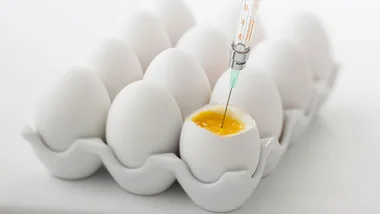Everyone knows what naughty food cravings are like – that irresistible late night urge to crack open the emergency chocolate or chow down on the double caramel choc-chip swirl ice cream in the fridge. But now a new study into our dietary habits may well have found the explanation for those lapses in self-control.
Canadian researchers have found that diets high in saturated fats – the fats most commonly found in butter, fat bacon and sausages, as well as palm oil, suet and coconut oil and even ice cream, which can have as much saturated fat as a t-bone steak– may push our brains into a reward-seeking state, making us lose self-control and motivation when it comes to foods we know we shouldn’t have.
Particular types of fat, especially saturated fats, can have an effect on the brain that closely resembles the psychological effects of Class A drugs – morphine or heroin, for example – in that it creates an addictive response. In simple terms, the more you have the more you want and the more it takes to get the same kind of satisfaction, just like a drug addict.
The study, conducted by researchers at the University of Montreal in Canada, and published Tuesday in the academic journal Neuropsychopharmacology, found that high-fat feeding impairs the production of a natural compound called dopamine, which is crucial in controlling mood, addictive behaviours and overeating and also moderates a psychological state known as hedonia or, as we better know it, a sense of well-being.
The researchers divided a group of rats into three. One was given a low fat diet, another a moderate fat diet using olive oil as a base and the third a diet high in saturated fats. For eight weeks they were free to eat as much as they liked before being subjected to a series of tests to measure the function of their dopamine system.
“We established that the rats on the palm diet had a significantly blunted dopamine function,” said Cecile Hryhorczuk, lead author of the study. “Our research group and others hypothesize that this leads the brain to try to compensate by heightening reward-seeking behaviour, much like the phenomenon of drug tolerance where one has to increase the drug dose over time to get the same high.
“So, a person consuming too much saturated fat may then compensate a reduced reward experience by seeking out and consuming more high-fat and high-sugar foods to get the same level of pleasure or reward.”
This is the first time research has demonstrated that unrestrained intake of saturated fats can negatively affect motivation. The researchers say they also have evidence that high consumption of saturated fats causes inflammation in the brain, findings that will be released in the future.



